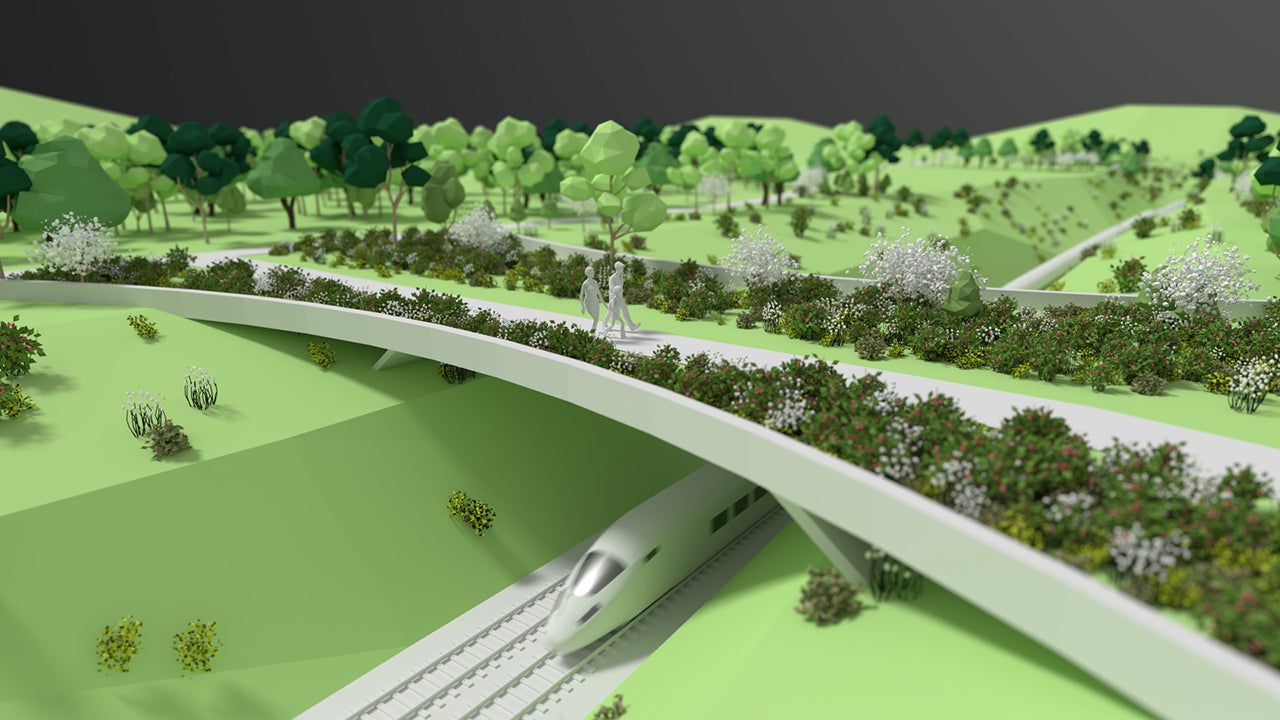
The cost of HS2 is “out of control” and could cost more than £100bn, the former deputy chairman of the UK Government’s independent review into the project announced yesterday.
In a report produced separately from the government’s Oakervee review, Lord Tony Berkeley said that the UK Parliament would never have agreed to build the high-speed rail line had they not been “misled” over its realisation.

Discover B2B Marketing That Performs
Combine business intelligence and editorial excellence to reach engaged professionals across 36 leading media platforms.
Lord Berkeley also estimated costs to be three times the original evaluation, claiming that they could reach a figure of at least £108bn.
The project was first forecast to cost £34bn in 2012, though the figure changed to £50.1bn in 2015. Finally, estimates by HS2 Ltd – the company in charge of the project – increased the price to £88bn last year.
Showing concern over the cost inflation, Lord Berkeley said that HS2’s benefits are now “overstated”. He added that Benefit Cost Ratio (BCR) of the project has fallen “below the break-even point of 1:1” and, following a detailed assessment of benefits, could further fall. As a result, British taxpayers would receive a return of only 60p for every pound that is spent on the project.
“There is also substantial evidence of poor project management and governance, and no sign that this problem will be resolved by the public bodies responsible for its delivery to give stakeholders and Government comfort that it is wise to spend over £100bn on one railway project,” Lord Berkeley added in his report.

US Tariffs are shifting - will you react or anticipate?
Don’t let policy changes catch you off guard. Stay proactive with real-time data and expert analysis.
By GlobalDataAlongside the line’s low value-for-money ratio, Lord Berkeley expressed apprehension with respect to its delivery. While the network between London and Birmingham was due to start running in 2029, he said that the chances of it happening before 2031 are slim, while high-speed trains might not reach Manchester and Leeds before 2040.
Lord Berkeley asked for his name to be removed from the Oakervee report, claiming he was not given the chance to amend some conclusions of the draft report overseen by Doug Oakervee, the former HS2 Ltd chair. As a result, he published his own version.
This report was welcomed by anti-HS2 campaigners and environmental groups. Stop HS2’s campaign manager Joe Rukin said: “This report leaves HS2 so irrevocably damaged that there can surely be no choice left but to cancel it.”
Rukin added that “the benefits were invented to try and con the public” and that “the environmental damage has been deliberately understated to greenwash the whole thing”.
He also said: “This report shows HS2 is beyond scandal, this report shows HS2 is nothing more than a decade-long calculated exercise to ignore the evidence, dismiss all criticism, bury the truth and defraud the taxpayer. HS2 must be cancelled immediately.”
Echoing a similar sentiment, Stop HS2 chair Penny Gaines added: “In the last six months, the expected cost has nearly doubled, the timescale massively increased and the environmental damage from HS2 is becoming increasingly apparent. It is time for this white elephant of a project to be cancelled as quickly as possible.”
However, not all agree with Lord Berkeley. The Rail Industry Association (RIA), which represents contractors working on HS2, urged the government to publish its independent review “to proceed with the project as soon as possible, to make the benefits of HS2 a reality, for the benefit of passengers, communities, and UK plc more widely, its economy and connectivity”.
RIA chief executive Darren Caplan also affirmed that “HS2 is vital for the UK as it seeks to boost its transport infrastructure for the whole country in the coming decades”.
He added: “It will provide much greater capacity by taking traffic off the current rail network, and transform connectivity between economic centres, cities, towns and communities.
“What’s more, as studies into HS2 have found, its benefits have been significantly undervalued, with forecasts of 500,000 extra jobs and 90,000 homes created around HS2 stations in the years ahead.”
In addition, Freight Transport Association (FTA)’s head of multimodal Alex Veitch said that the project is vital for the future of rail freight and that it is a “once-in-a-generation chance to make Britain’s transport network more sustainable.”
Veitch said: “While reports of spiralling development costs are concerning, any cost-benefit analysis should include the value of released capacity made available for freight services on conventional lines once HS2 is operational.
“Currently, the UK’s rail network is bursting at the seams, with freight competing for space with commuter and leisure services, and losing out in many cases. FTA’s support for the project is, however, dependent on the government providing a cast-iron guarantee that freight services will have sufficient access to the released capacity that HS2 will provide.”
In the wake of Lord Berkeley’s report, a spokesperson from the Department of Transport said: “The government commissioned the Oakervee review to provide advice on how and whether to proceed with HS2, with an independent panel representing a range of viewpoints.
“Lord Berkeley’s report represents his personal view.”





